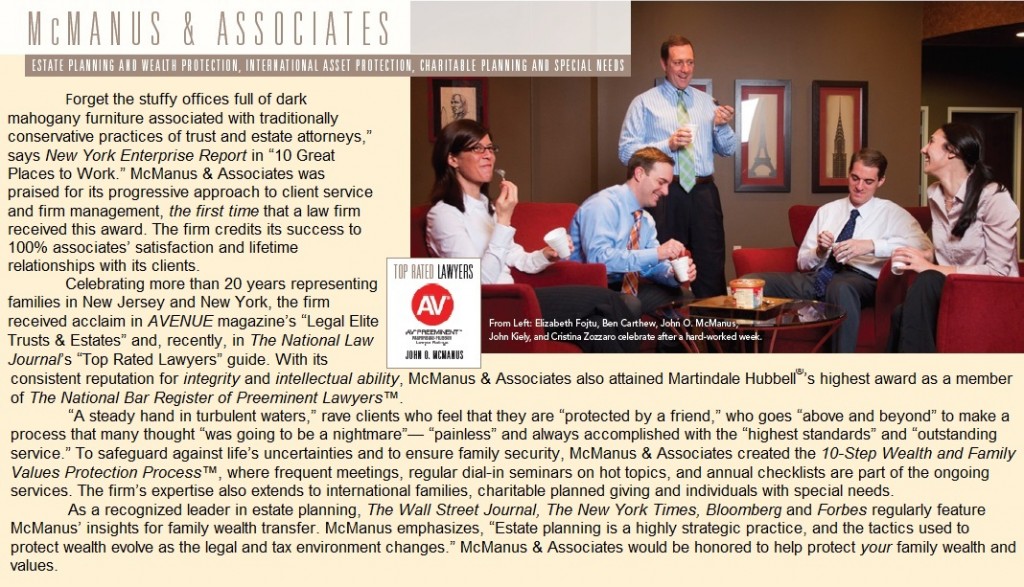Founding Principal of McManus & Associates John O. McManus recently spoke with Ashlea Ebeling, who writes about how to build, manage and enjoy your family’s wealth for Forbes, to share his pre and post-mortem planning advice for spouses, based on his experience working with numerous high-net-worth widows over nearly three decades. McManus also connected Ebeling with two of his clients who shared how they navigated the challenges following the passing of their partners, from managing complexities of portfolios that fell on their shoulders, negotiating with lenders and insurance carriers, how long it took before they turned a corner from a grief standpoint, and more.
The article, “A Widow’s Advice to Her Younger Self,” starts with an invaluable piece of advice: don’t let your spouse do all of your family’s financial planning without your involvement; tell him or her, “This is stuff I need to know!” Those words of wisdom came from McManus & Associates client Bridget Wilson, whose husband passed away from cancer.
From the story:
Unfortunately, the Wilsons’ case is one their estate planner, John O. McManus, says happens all too frequently. He’s helping another financially unsophisticated spouse in her 40s sort out the estate of her late husband, a real estate investor, who committed suicide. “Each one was surprised and unprepared,” he says of the widows. “They simply were not ready.”
Here are the pre-mortem key takeaways that McManus, Wilson and McManus & Associates’ other client who participated in the story hope will be helpful to others:
Do a dry run. Wilson’s husband never signed their will, “so McManus had to petition the probate judge to admit it. ‘All of that would have evaporated if the will hadn’t been validated,’ McManus says.”
Talk to your spouse. Don’t sign things no questions asked. McManus & Associates’ client urges, “Don’t be embarrassed. Don’t be ashamed. Just ask for help.”
Plan for liquidity. “Review investment and retirement accounts for potential income streams,” writes Ebeling.
And after the death of a spouse? Here are important to-do’s from the story:
Revisit your estate plan. From the article, “McManus’ first piece of advice to Wilson was to write her own will as well as a financial power of attorney and healthcare proxy. And to sign everything.”
Seek outside experts. “A good estate administrator will know his or her limits and call on experts as needed,” says Ebeling. Citing McManus’ help to the widow who lost her husband to suicide, “On behalf of the other widow, McManus hired a real estate lawyer to stop the house foreclosure, and a real estate agent to rent it out while she downsized. He introduced her to a financial advisor who negotiated with the private school that was going to kick out her kids for being behind on tuition.”
Find your purpose. In short, ask yourself what will give your life new meaning, and go do it!
Read the full Forbes story here.
For help with pre and post-mortem estate planning, reach out to McManus & Associates at 908-898-0100. We look forward to supporting you.








 ⟩
⟩ ⟩
⟩ ⟩
⟩ ⟩
⟩ ⟩
⟩ ⟩
⟩